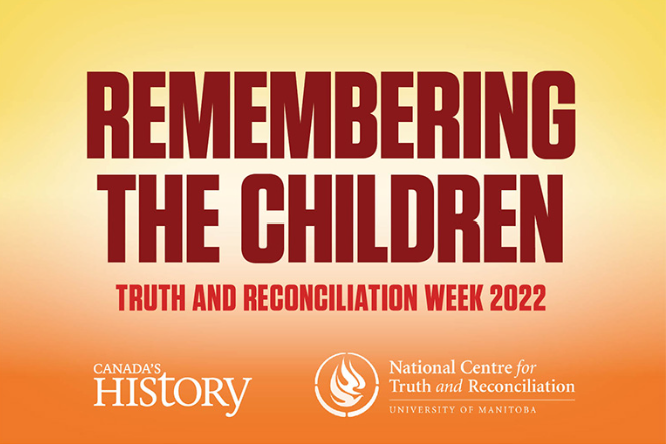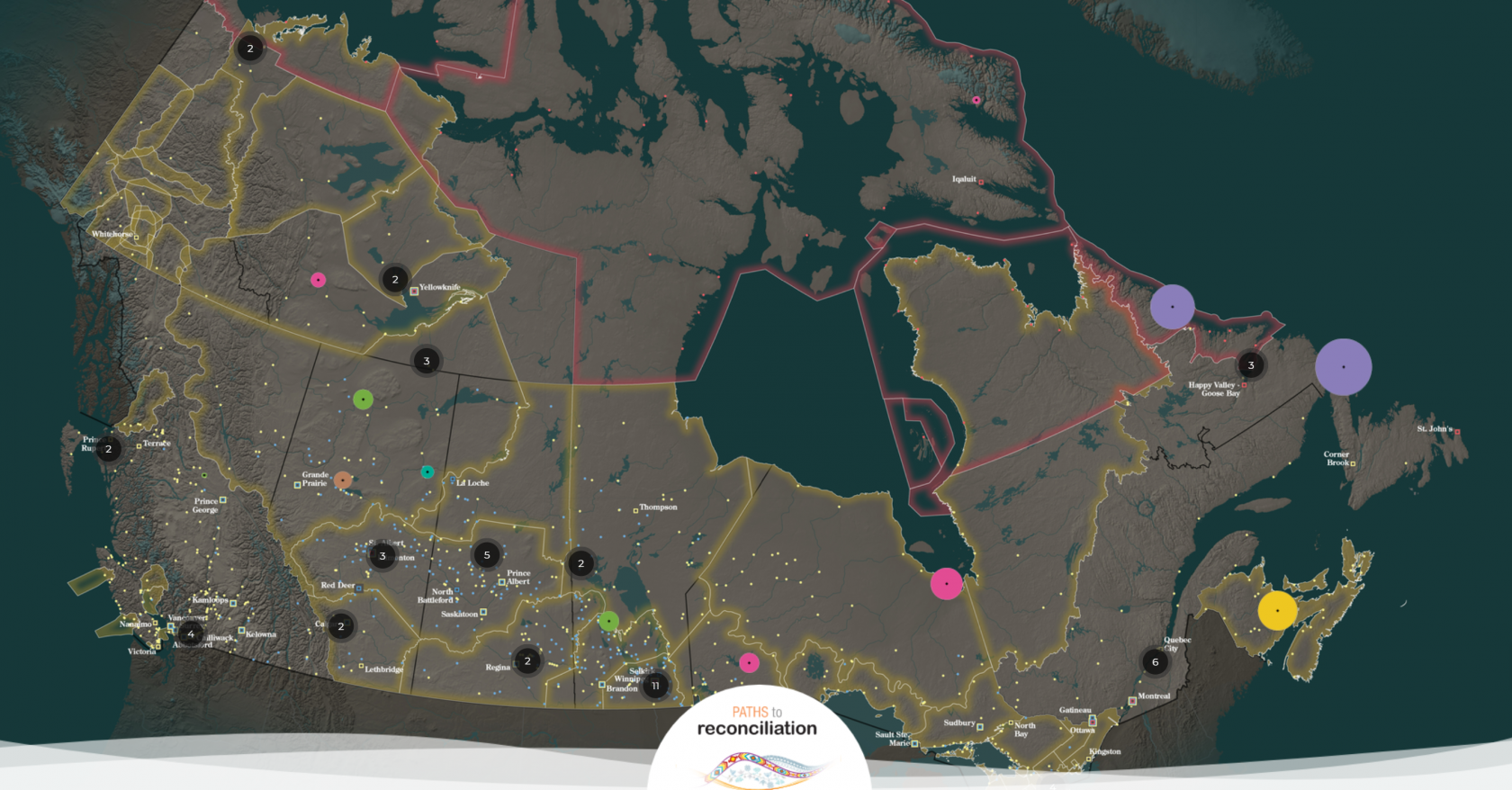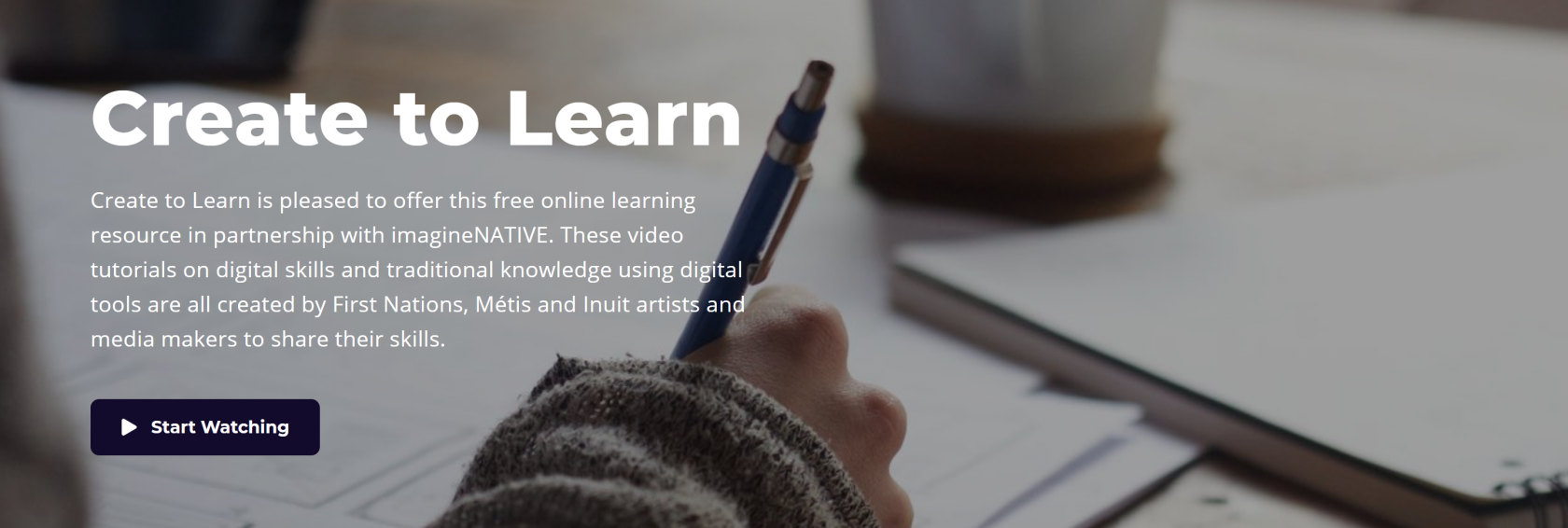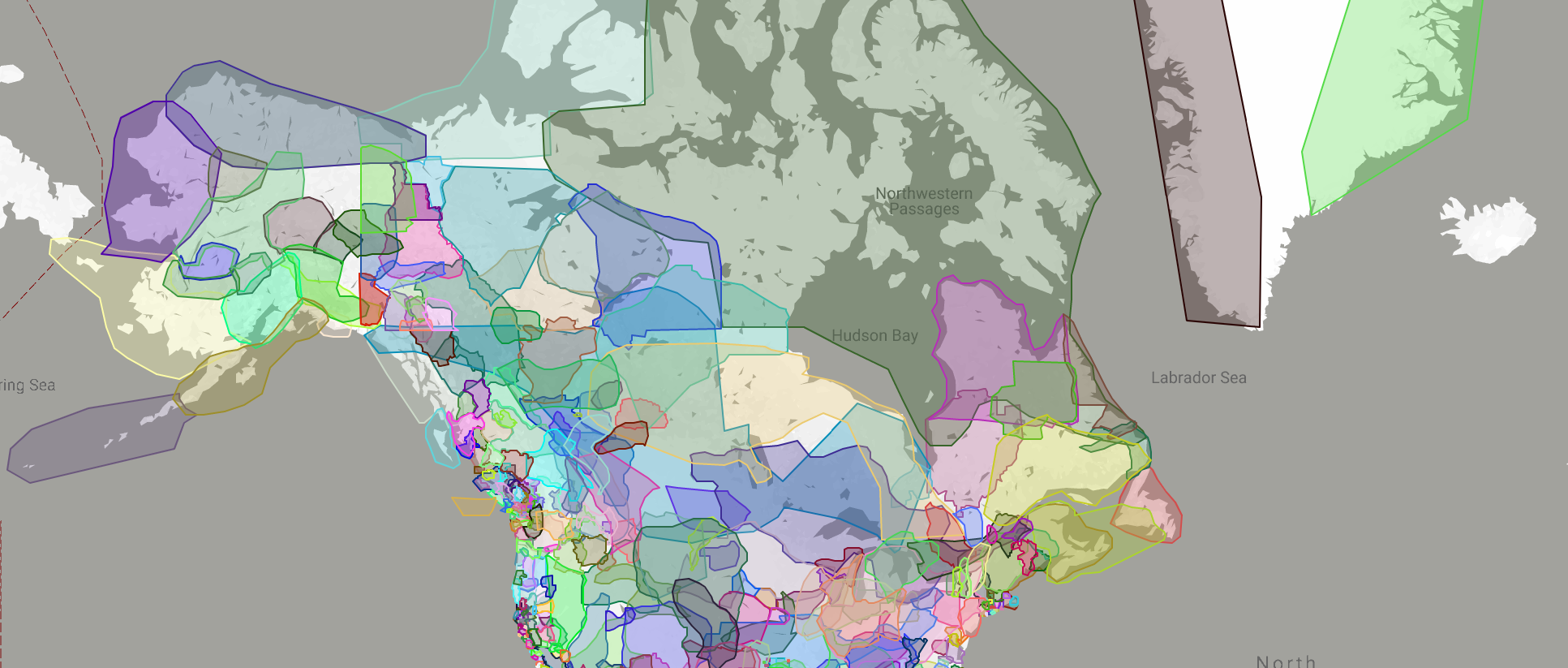Website Resources
Truth and Reconciliation Week
Truth and Reconciliation Week 2022 is a national program open to all schools across Canada. This year, our theme is “Remembering the Children”. Join us as we memorialize the children lost to the residential school system and honour Survivors and their families. Learning and commemorating the truth of our history from First Nations, Métis, and Inuit knowledge keepers is an important part of the path to Reconciliation.
TheThis year includes an expanded program with age-appropriate material for students in grades 1 through 12.
Days 1 to 3 feature pre-recorded videos and a live Q & A session. On September 30, students will be able to view a live televised broadcast for Orange Shirt Day from their homes.
An accompanying resource to this, is the magazine Remembering the Children published by National Centre for Truth and ReconciliationReconciliation. This resource offers a way to begin conversations with students and is hosting an online eventintended for Gradegrades 5-12 students. This five-day national event will continue the conversations from Every Child Matters, including the truths of the Indigenous treaties, First Nation, Métis and Inuit land claims, and the residential schools system. This online event will provide historical workshops, exclusive video content, and activities for students — all supported by artistic and cultural performances by First Nations, Métis, and Inuit artists. You may wish to incorporate the accompanying Truth and Reconciliation Educational Package12. to support student learning at the weekly events.
Free registration is available at this link.
Monday, September 26:Embracing Truth for Meaningful ReconciliationTuesday, September 27:7 Grandfather Teachings Sharing Circle Workshop- Truth & ReconciliationWednesday, September 28:Reconciliation - Show & ShareThursday, September 30:Cultivating Safe Spaces for Reconciliation
Canadian Geographic’s Education Indigenous Resources
The Can Geo Education website contains resources to support education as a tool for reconciliation. Students can interact with Google Earth Voyageur stories to learn about Canada’s residential schools, original place names, and Indigenous cultural heritage. Other resources include Paths to Reconciliation, a website charting residential schools not yet recognized by the Canadian federal government, and Re:Location, an interactive website to learn about the history of Indigenous community relocation across Canada.
Create to Learn
Create to Learn is a video-based resource featuring online tutorials on digital skills and traditional knowledge using digital tools. All videos and resources are created by First Nations, Métis, and Inuit artists and creatives to showcase their skills. Topics include:
-
Health & Well-Being
-
Writing
-
Video & Film
-
Visual Arts
-
Game Design
-
Drones
-
Music & Songwriting
-
Entrepreneurship & Design
-
Photography & Photoshop
- Cultural Teachings
Whose Land
Explore the Whose Land website to learn about the territory your home or business is situated on, find information for a land acknowledgement, and learn about the treaties and agreements signed across Canada. Educational videos are available to watch, that will give you a better understanding of why land acknowledgements are important, and the way Indigenous people view their relationship to land. The app consists of six different maps of Indigenous territories, Treaties, and First Nations, Métis, and Inuit communities. Each community's location will eventually host a land acknowledgement video, and other information that the community would like to include on their page. The website showcases lesson ideas for students across Kindergarten to Grade 12:
National Day for Truth and Reconciliation
Each year, September 30th marks the National Day for Truth and Reconciliation and Orange Shirt Day. Orange Shirt Day is an Indigenous-led grassroots commemorative day intended to raise awareness of the individual, family and community inter-generational impacts of residential schools, and to promote the concept of “Every Child Matters”.




